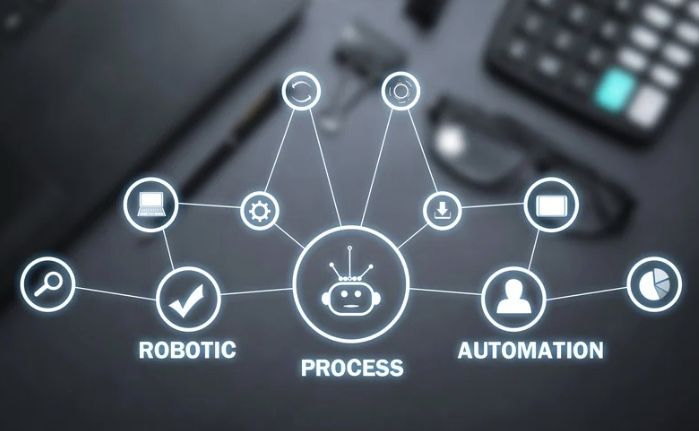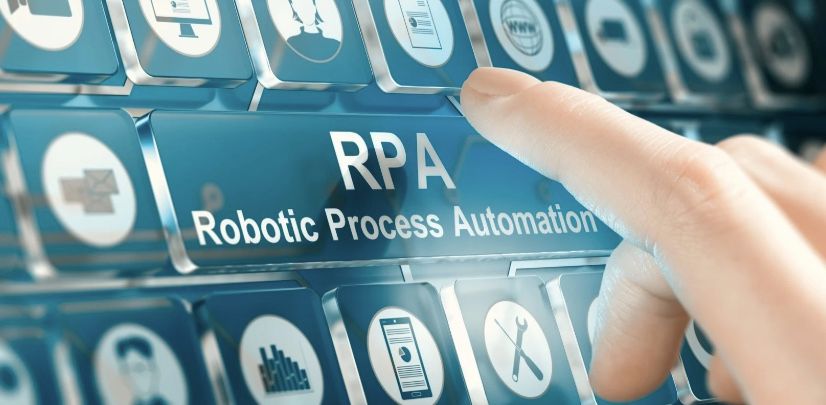What is MES PLC Integration?
What is MES Integration?
MES System Integration refers to the process of connecting Manufacturing Execution Systems (MES) with other software systems within an organization's technology infrastructure. This integration allows MES to communicate seamlessly with other systems such as Enterprise Resource Planning (ERP), Product Lifecycle Management (PLM), and Supervisory Control and Data Acquisition (SCADA) systems. MES integration enables the exchange of real-time data between different parts of the manufacturing process, facilitating improved decision-making, enhanced visibility, and streamlined operations. By integrating MES with other systems, organizations can achieve greater efficiency, productivity, and agility in their manufacturing processes, ultimately leading to improved performance and competitiveness.

Manufacturing Execution System PDF
Manufacturing Execution System (MES) PDFs are comprehensive documents that provide insights into the functionalities, benefits, and implementation of MES software solutions. These PDFs often include detailed explanations of MES features such as production scheduling, resource allocation, quality control, and performance analysis. Additionally, they may contain case studies, best practices, and real-world examples to illustrate how MES systems can drive operational excellence in manufacturing environments. Companies researching MES solutions can utilize these PDFs to evaluate different vendors, understand the ROI potential, and make informed decisions about MES implementation.
Manufacturing Execution System
A Manufacturing Execution System (MES) is a software-based solution designed to manage and optimize manufacturing processes in real time. MES systems play a crucial role in bridging the gap between planning and execution by providing visibility, control, and agility on the shop floor. These systems collect data from various sources, such as machines, sensors, and human operators, and utilize advanced analytics to improve productivity, quality, and efficiency. MES software offers functionalities such as production scheduling, job tracking, inventory management, and performance analysis, empowering manufacturers to meet production goals while maintaining competitiveness in today's dynamic market.
What is SAP and MES
SAP, or Systems, Applications, and Products, is a leading multinational software corporation renowned for its Enterprise Resource Planning (ERP) software. In contrast, MES (Manufacturing Execution System) is a specialized software solution tailored for managing and optimizing manufacturing processes on the shop floor. While SAP ERP integrates various business functions like finance and supply chain management, MES systems focus specifically on real-time monitoring, control, and analysis of production activities. By integrating SAP ERP with MES systems, organizations can synchronize production data with broader business processes, enhancing operational efficiency and decision-making capabilities across the manufacturing enterprise.
SAP MES
SAP MES (Manufacturing Execution System) is a comprehensive solution provided by SAP to streamline and optimize manufacturing processes. It integrates seamlessly with SAP ERP systems, allowing for real-time data exchange and synchronization between shop floor operations and business processes. By leveraging SAP MES, organizations can achieve greater visibility, control, and agility across their manufacturing operations, ultimately driving efficiency and productivity gains.
What Does MES Stand For?
MES stands for Manufacturing Execution System, which is a software solution designed to optimize and control manufacturing operations on the shop floor. These systems provide real-time visibility into production processes, enabling organizations to monitor and manage activities such as production scheduling, quality control, and resource allocation. MES software captures data from machines, operators, and other sources to facilitate decision-making and improve overall efficiency. By implementing MES, organizations can streamline their manufacturing processes, reduce costs, and enhance product quality and customer satisfaction.
MES Meaning
MES stands for Manufacturing Execution System. It is a software-based solution used in manufacturing industries to monitor, control, and manage production processes in real time. MES systems collect and analyze data from various sources on the shop floor, enabling manufacturers to optimize operations, improve quality, and make informed decisions to meet production goals.
What is The Role of MES in SAP
MES software, short for Manufacturing Execution System software, is a critical component of modern manufacturing operations. It enables manufacturers to monitor, control, and manage production processes in real time. MES software offers functionalities such as production scheduling, job tracking, inventory management, and performance analysis. By leveraging MES software, manufacturers can optimize their operations, improve quality control, and make informed decisions to meet production goals.
What does MES mean in SAP
In SAP, MES stands for Manufacturing Execution System, which refers to a suite of modules designed to enhance production management within the SAP ecosystem. These MES modules provide functionalities such as shop floor control, production tracking, and quality management, enabling organizations to optimize manufacturing processes. MES in SAP integrates with other SAP modules to ensure seamless data exchange and synchronization of production data with enterprise-wide operations. By leveraging MES in SAP, organizations can achieve real-time visibility, improve operational efficiency, and make informed decisions to meet production targets and customer demands.
MES Software Vendors
MES software vendors provide solutions designed to manage and optimize manufacturing processes in real time. These vendors offer a range of products and services tailored to the needs of various industries and business sizes. Leading MES software vendors include Siemens, Rockwell Automation, ABB, and Dassault Systèmes, among others. These vendors offer comprehensive MES solutions that empower manufacturers to improve productivity, quality, and efficiency in their operations.
MES Software
The role of MES in SAP is crucial for bridging the gap between production execution and enterprise-level planning and management. MES systems complement SAP ERP by providing real-time visibility into manufacturing operations, capturing shop floor data, and enabling timely decision-making. This integration enhances operational efficiency, quality control, and traceability throughout the production lifecycle, ultimately contributing to overall business success.
What is MES vs SCADA vs ERP
MES (Manufacturing Execution System), SCADA (Supervisory Control and Data Acquisition), and ERP (Enterprise Resource Planning) are three distinct but interconnected systems in manufacturing. While MES focuses on managing and optimizing production processes in real time, SCADA primarily monitors and controls industrial processes and equipment. ERP, on the other hand, integrates core business processes such as finance, HR, and supply chain management. Together, these systems provide end-to-end visibility and control over manufacturing operations.

What is an Example of MES
An example of a Manufacturing Execution System (MES) is Siemens Opcenter Execution, formerly known as SIMATIC IT. This MES solution offers a comprehensive set of functionalities to manage and control manufacturing operations on the shop floor. With Siemens Opcenter Execution, organizations can optimize production scheduling, monitor machine performance, track inventory, and ensure compliance with quality standards. By implementing this MES software, businesses can achieve greater visibility, efficiency, and agility in their manufacturing processes, ultimately leading to improved productivity and competitiveness.
MES System Examples
An example of MES is a system that tracks and manages the production process in an automotive assembly plant. This MES system collects real-time data on equipment status, inventory levels, and production metrics, allowing for optimized scheduling, resource allocation, and quality control. Popular MES system examples include solutions from leading providers such as Siemens, Rockwell Automation, and ABB.
What Are the Basics of MES?
The basics of MES include functionalities such as production scheduling, job tracking, inventory management, quality assurance, and performance analysis. MES systems enable manufacturers to monitor and control every aspect of the production process in real time, from raw material procurement to finished product delivery. By automating workflows, capturing data, and providing actionable insights, MES solutions drive operational efficiency and productivity in manufacturing environments.
What is the Difference Between MES and SAP (MES vs ERP)?
The difference between MES and SAP lies in their scope and focus within the manufacturing ecosystem. MES (Manufacturing Execution System) is specialized software designed to optimize and control manufacturing processes on the shop floor, focusing on real-time monitoring, control, and analysis. In contrast, SAP (Systems, Applications, and Products) is an Enterprise Resource Planning (ERP) system that integrates various business functions like finance, supply chain, and human resources into a single platform. While MES specializes in managing production activities, SAP ERP covers broader business processes, with MES often integrated as a module to provide real-time production data and control capabilities within the SAP ecosystem.
MES vs. ERP
The main difference between MES and SAP ERP lies in their scope and focus within the manufacturing process. While MES primarily deals with shop floor operations, such as production scheduling, quality control, and resource management, SAP ERP integrates broader business processes across the enterprise, including finance, procurement, and sales. MES focuses on optimizing manufacturing execution, whereas SAP ERP provides a holistic view of the entire organization's operations.
What Are the Most Popular MES Systems
Some of the most popular MES systems in the market include Siemens Opcenter (formerly known as SIMATIC IT), Wonderware MES, and Apriso MES. These systems are renowned for their comprehensive features tailored to various industries, offering functionalities such as real-time monitoring, production scheduling, and quality management. Siemens Opcenter stands out for its scalability and integration capabilities, making it suitable for both small and large enterprises. Wonderware MES is recognized for its user-friendly interface and extensive support for data analysis, while Apriso MES is known for its robust functionality and ability to streamline complex manufacturing processes.
Top MES Systems
Manufacturing Execution Systems (MES) play a crucial role in modern manufacturing, offering real-time visibility and control over production processes. Some of the top MES systems preferred by industries worldwide include Siemens MES, renowned for its comprehensive suite of manufacturing solutions tailored to various sectors. Wonderware MES stands out for its user-friendly interface and scalability, making it suitable for small to large enterprises seeking operational excellence. Additionally, Apriso MES is recognized for its robust functionality, enabling organizations to streamline operations and achieve higher levels of efficiency.
List of MES Software
A diverse range of MES software exists to cater to the specific needs of different industries and manufacturing processes. Among the notable MES software solutions are Rockwell Automation's FactoryTalk ProductionCentre, known for its integration capabilities with other automation systems. Another prominent option is Aegis FactoryLogix, which offers advanced features like digital work instructions and real-time process monitoring. Additionally, Plex Manufacturing Cloud provides a comprehensive MES solution delivered through a cloud-based platform, ideal for businesses looking for scalability and flexibility.
Leading MES Software Providers
Several companies specialize in providing MES software solutions to industries worldwide, offering a combination of cutting-edge technology and industry expertise. Siemens, a global powerhouse in industrial automation, stands as a leading MES software provider, offering solutions tailored to various manufacturing sectors. Rockwell Automation is another major player, known for its FactoryTalk suite of MES software designed to enhance productivity and quality across manufacturing operations. Additionally, Dassault Systèmes with its DELMIA Apriso MES solutions empowers manufacturers with real-time insights and agility to adapt to changing market demands.
Is SAP an MES System
SAP, a leading provider of enterprise resource planning (ERP) software, offers some MES functionalities within its broader suite of solutions. While SAP ERP systems can handle production planning and scheduling, they may lack the depth of functionality found in dedicated MES software. However, SAP Manufacturing Execution provides modules for shop floor control, quality management, and production tracking, making it a viable option for integrated manufacturing operations.



